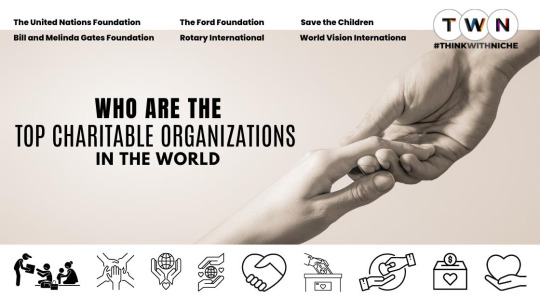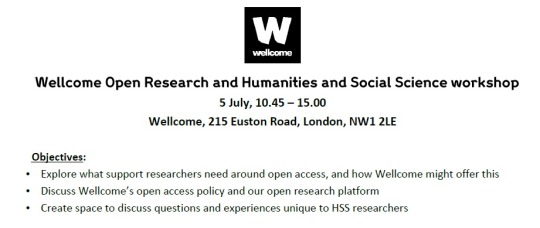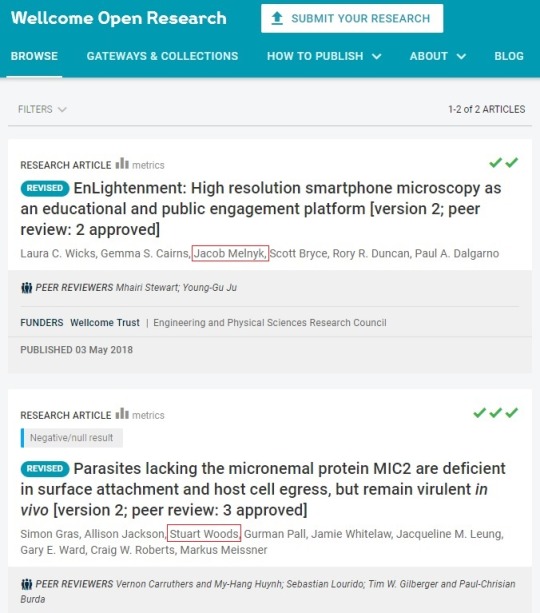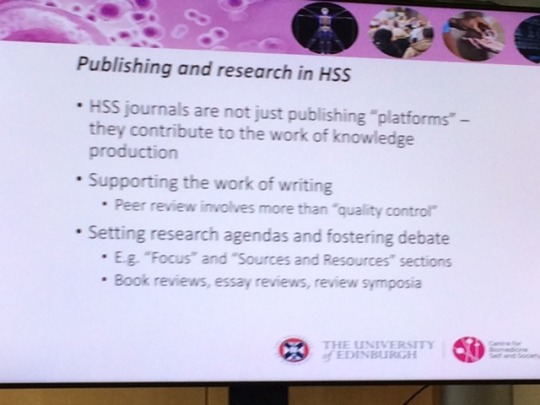#wellcometrust
Explore tagged Tumblr posts
Photo

I’m taking over the Wellcome Photography Prize Instagram this week! Head over to @wellcomephotoprize IG to check it out!
2 notes
·
View notes
Text
Who Are The Top Charitable Organizations In The World- An Exclusive Coverage

Charitable organizations play a critical role in supporting vulnerable communities and individuals worldwide. Their initiatives range from healthcare, education, disaster relief, and poverty reduction. These organizations operate on a global scale, with some having a presence in multiple countries. In this article, we will explore some of the largest charitable organizations in the world, their initiatives, and their worldwide reach.
Charitable organizations are institutions that are established with the purpose of providing assistance, support, and aid to those in need. These organizations can be found in every part of the world, and their work has touched the lives of millions of people across the globe. In this article, we will discuss the largest charitable organizations in the world, detailing their initiatives, worldwide reach, country base, head office, partners, and important projects.
Charitable organizations are non-profit entities established to provide support, aid, and assistance to individuals or groups in need. These organizations operate for the betterment of society and work towards improving the quality of life of people.
Definition of Charitable Organizations:
Charitable organizations are non-profit entities that operate for the public good. They have a social purpose and work towards achieving a specific goal or cause. They use their resources to support the needs of the community and provide aid to those in need.
Importance of Charitable Organizations:
Charitable organizations play a vital role in society. They provide support and assistance to individuals or groups who may be facing challenges or difficulties. They aim to improve the quality of life of people and work towards creating a better future for society as a whole. Charitable organizations also provide an opportunity for individuals to give back to the community and make a positive impact.
To Read This Full ARTICLE, Click Here
0 notes
Text
Wer korrumpiert die #WHO neben Bill #Gates‘ Stiftung und dem #WellcomeTrust noch?
Schöne Aufarbeitung von #ChildrensHD:
https://live.childrenshealthdefense.org/chd-tv/events/w-h-o-do-you-think-you-are-exposing-the-globalists-w-h-o-scheme-or-may-19th/who-do-you-think-you-are-exposing-globalists-who-scheme-may19th/
#Aufarbeitung #ZAAVV
2 notes
·
View notes
Text
Research Assistant - Drosophila genetics and developmental biology University of Cambridge Join us in #Cambridge as a Research Assistant. #Drosophila #genetics, molecular biology, and confocal #microscopy. See the full job description on jobRxiv: https://jobrxiv.org/job/university-of-cambridge-27778-research-assistant-drosophila-genetics-and-developmental-biology/?feed_id=53481 #ScienceJobs #hiring #research #Drosophila, #embryos, #imaging, @GeneticsCam, @Cambridge_Uni, @wellcometrust Cambridge #UnitedKingdomUK #ResearchAssistant
0 notes
Text
How amazing is it to hear mitochondrial diseases and the impact of it on families being talked about in the main stream media in connection to pioneering IVF treatment.
As a passionate advocate for mito and the groundbreaking research it has taken to reach this point, Leigh Network are so proud to have been a part of this. It won’t help every family but for those it will help it will be life changing, please respect the privacy of the families and we send you all our love.
Please follow the link to find out more from The Newcastle Wellcome Trust https://from.ncl.ac.uk/world-first-mitochondrial-donation
Awareness and understanding is vital when it comes to supporting each other and research is key to find a cure and treatment for those affected by mitochondrial disease. Together we are stronger. Many different organisations have been involved in this pioneering work, including changes to the law.
#Mito #ResearchIsVital #FindACure #StrongerTogether #WellcomeTrust
0 notes
Photo

The human genome, all written down. Some 5 billion characters.
#Wellcome#wellcometrust#wellcomecollection#genome#humangenome#dna#science#medicine#research#facts#fascinating#intriguing#life#code#london#lensblr#original#original photographs#original photographers
51 notes
·
View notes
Photo

Lionel Richie vibe... • • #feel #anthonygormley #dancingontheceiling #lionelrichie #sculpture #art #artist #ceiling #ceilingart #medicine #medical #medicalhistory #medicallibrary #wellcome #wellcomecollection #wellcometrust #sirhenrywellcome #wonderfulspace #museum #medicalmuseum #charity #charitabletrust #freemuseum #londonmuseum #london #euston #iphonex (at Wellcome Collection) https://www.instagram.com/p/Bt2qiYEgcxO/?utm_source=ig_tumblr_share&igshid=1px7yyznum62r
#feel#anthonygormley#dancingontheceiling#lionelrichie#sculpture#art#artist#ceiling#ceilingart#medicine#medical#medicalhistory#medicallibrary#wellcome#wellcomecollection#wellcometrust#sirhenrywellcome#wonderfulspace#museum#medicalmuseum#charity#charitabletrust#freemuseum#londonmuseum#london#euston#iphonex
2 notes
·
View notes
Photo

The Play Well exhibition at the @wellcomecollection covered every kind of nuance and trend in play and in toy manufacture, too. With a gorilla Barbie and GI Joe voice swap, non gender specific dolls, differences in class, health & safety (a real fun killer, excuse the pun), the importance of imagination and so much more. Final pics are a film of a room set up with various structures. A group of boys were let in and a fun process of assessment, dismantling, wrecking, play fighting and resurrecting ensued. I wonder what a group of girls would have done. . Excellent exhibition for anyone training in the field, but also wonderful for parents, children and just anyone who fancies a trip down memory lane! . . . . #playwell #wellcomecollection #wellcometrust #exhibition #importanceofplay #historyofplay #teachers #parents #childrensplay #childrenplaying #historyoftoys #nostalgia #memorylane #atripdownmemorylane (at Wellcome Collection) https://www.instagram.com/p/B8n9NSUHIVe/?igshid=df9pw3s9iofn
#playwell#wellcomecollection#wellcometrust#exhibition#importanceofplay#historyofplay#teachers#parents#childrensplay#childrenplaying#historyoftoys#nostalgia#memorylane#atripdownmemorylane
0 notes
Text
Wellcome Workshop for funded researchers in the SSH
Pablo de Castro, Open Access Advocacy Librarian

On Fri July 5th the Wellcome Trust held a full-day workshop in London for their funded authors in Social Sciences and Humanities. Approximately 30 funded researchers attended the event, with a fairly homogeneous distribution across UK geographies and academic seniority. The only Open Access advocate in the room – attending the event on behalf of our institutional Wellcome-funded authors at Strathclyde – was yours truly.
The workshop meant a good opportunity to get a first-hand insight on researchers’ views on topics like Plan S and the Wellcome Open Research platform. Also, being an SSH-specific event, it provided the chance to explore to what extent the STM-centric compliance workflows can be tweaked to address the specific circumstances and needs of this community.
The agenda for the day included a few presentations (Robert Kiley and Diego Baptista, Wellcome, Steve Sturdy, Uni Edinburgh and Helen Saunders, Open Library of Humanities) and two lively breakout sessions to discuss (i) the main issues around Open Access and SSH and (ii) what the Wellcome could do to specifically support SSH authors and disciplines within the ongoing shift in the publishing landscape.
The discussions held at the event mostly focused on the Wellcome strategy to influence/press publishers in order for the publishing landscape to evolve towards more openness. A particularly hot topic was the perceived limitation1 in the choice of publishing venues arising from Plan S principles. This is part of a wider concern that the SSH disciplines may risk being dragged along a path that has been designed with mainly the STM publishing landscape in mind.
Robert Kiley’s presentation provided the rationale for the updated Wellcome Trust Open Access policy (to kick-off as of Jan 1st, 2021) and dispelled some of the most pressing concerns raised by SSH authors in the round of consultations held by cOAlition S. The main goals of this policy are:
to have all articles available Open Access upon publication (RK showed the current OA figures that prove it’s still a long way to go to achieve this objective), and
for all articles to be re-usable (meaning machine-readable for TDM purposes, with the “Mining the History of Medicine” project by the National Centre for Text Mining NaCTeM mentioned as an example).
Some concerns around Plan S mentioned in the presentation (together with the ways to mitigate them) were:
Limited choice of compliant publication venues: this needn’t be the case if publishers are capable of evolving their business models. Green Open Access (meaning deposit of accepted manuscripts in institutional platforms) is also an option for compliance, so the discussion doesn’t just need to focus on the suitability or otherwise of Article Processing Charges
Impact on international collaborations (see item 1 on the U Edinburgh feedback to cOAlition S): the Gates Foundation is also a Plan S signatory and they haven't seen any impact in terms of hampering international collaborations because of potentially limited eligibility of publishing channels
Issues with a strict CC-BY licence (also described in the Edinburgh response to Plan S): revision has softened the requirement for the SSH; “As an interim measure to address the concerns, particularly expressed by HSS communities, we recommend that funders should be willing to consider an exemption from the requirement for a CC BY license to allow the use of CC BY-ND on a case-by-case basis”
Too tight timeline for the transition: the first Open Access policy by the Wellcome Trust was issued in 2006. The transition has been going on for quite some time already, but the pace is too slow
Learned societies unable to find alternative business models for their subscription-based journals: the Wellcome Trust is working together with a number of learned societies in order to promote collaboration and explore various options in this regard – reporting expected on this strand later this year.

RK also highlighted a recent piece published by Jasmine Lange from SSH publisher Brill in the Netherlands ("Plan S and Humanities Publishing", Jul 2nd, 2019) where she states that an SSH exception to Plan S and/or the continuation of 24-month embargo periods would mean a high risk for the SSH being left behind on impact and funding.
Wellcome Open Research platform
This was followed by a presentation of the Wellcome Open Research (WOR) publishing platform by Diego Baptista. The success of this publishing channel (4th venue altogether by number of Wellcome-funded publications after Scientific Reports, Nature Comms and PLoS ONE) and its quick review process and affordability (average APC one third of the ‘externally paid’ one) are described in this Jan’2019 post. It’s also covering a wide range of outputs beyond articles (such as negative results, which happens to be the area for one of the two pieces published at WOR by Strathclyde authors thus far as shown on the figure below) and offering a safe publishing channel to Wellcome-funded authors in developing countries, thus tackling predatory publishing.

A number SSH researchers in the room raised issues with a publishing platform like the WOR, mainly focused on the lack of editors. The risk was highlighted for ‘toxic’ submissions akin to the Wakefield anti-vaccination paper in The Lancet to get openly posted on the platform while awaiting peer-review – even if the submission were eventually rejected, it could still collect a few citations while sitting in the WOR.
SSH disciplines are different
U Edinburgh Steve Sturdy (who has published an Open Letter on Biomedicine, self and society in the WOR himself) provided a wider context for the reluctance of SSH scholars towards publishing platforms by describing the specific role that well-established publishing venues play in the SSH disciplines in his presentation on ‘Open Access and HSS Disciplines’. He emphasised the ‘sociality’ of SSH journals, which act as knowledge producers and community drivers in a distinct way, see associated figure. A strategy for replacing publishing venues with a social mission in a specific discipline with either publishing platforms or new titles would put this mission at risk.

Four main issues were in fact raised – both in Steve’s presentation and in the subsequent breakout session to discuss OA in the HSS – with regard to the perceived threat for a restriction in publishing channels generated by the implementation of Plan S in the SSH:
Destruction of the current publishing landscape with ‘sociality’ at its core
Particularly bad consequences for ECRs: "I am not sure I would feel inclined to recommend my ECR to apply for a Wellcome grant should these restrictions be in force that will prevent her to progress in her career" – stated one researcher in the room
Implications for unfunded authors in a landscape where funding is scarce
Too tight implementation schedule: it will be very difficult for current publishing channels to come up with alternative business models in such a short time as the policy proposes
There was a further call for Wellcome to support the area of SSH as a whole and not just Wellcome-funded authors, for instance by ensuring the voice of SSH researchers is heard in the discussions around alternative business models. A widespread belief was expressed that a model based only on Article Processing Charges (APCs) will not succeed in the SSH and that there need to be multiple co-existing mechanisms for compliance, including Green Open Access and crowdfunded business models with institutions as supporters (the afternoon presentation on the Open Library of Humanities looked deeper into these crowdfunded models for both journals and books).
The breakout discussions touched on various specific topics such as the REF requirements and to what extent they may help evolving the landscape (including its eventual expansion to books), the specific relevance of languages other than English in the SSH or the role of institutions in providing information on and support for the implementation of Plan S (most researchers in the room admitted not being regularly in contact with their institutional Open Access support services at their libraries, and the Wellcome lead may consider a follow-up workshop to promote the engagement of institutions in the process).
The listening exercise was very valuable and key for building the 'bond of trust' that needs to exist in order for authors to take into consideration the funder's recommendations around the evolution of the Open Access landscape. A potentially very useful outcome could be the establishing of a regular information exchange mechanism that allowed researchers to stay updated on the way the landscape is evolving in their specific field (covering aspects such as evolving positions with regard to Plan S by different funders, steps taken by specific publishers in transitioning their business models, reporting on the discussions with learned societies etc). Communication is key as ever and institutions may have an important role to play here too. We will definitely try our best at Strathclyde, but it could make sense to make this a wider effort.
1. See this statement “some publishers are claiming that authors will no longer be able to publish in their journals - but this would not be the case if they were to change some of their policies” on the webpage that the University of Edinburgh Information Services have put together about Plan S.↩
0 notes
Video
vimeo
Angels&Ghosts
1 note
·
View note
Photo

Congratulations to David Blandy on the publication of his graphic novel "Out of Nothing" written with David Locke and published by Nobrow Press. . . . . . #geoffreystein #davidblandy #davidlocke #outofnothing @david_blandy_ #WellcomeTrust @wellcomecollection #artscouncilengland @daves_comics #comics #sladeschooloffineart @sladeschool #nobrowpress @nobrowpress
#artscouncilengland#davidlocke#davidblandy#wellcometrust#sladeschooloffineart#outofnothing#geoffreystein#comics#nobrowpress
0 notes
Video
tumblr
WEDNESDAY 10th JANUARY 2018 We attended the launch of a new co-creative arts project at the Hub, Wellcome Collection. We met with a few other people living with dementia and their partners, three musicians, two researchers, and two dancers including Clare who is talking to me in the pictures. When we got chatting I found out that Clare had been at the Upstream Theatre Club. Such a nice coincidence! Later on we played together using music, dance movements, our personal life-stories and our imagination. It was fun! We look forward to the next session in February. DJW
JOIN ME ON MY ALZHEIMER’S DIARY
WHY A BLOG & A DIARY?
0 notes
Photo

Liquid crystal by Karen Neill. Wellcome Trust I was awarded the Wellcome Trust Photographic Image Award for my work with LC, as an Artist #saatchart#wellcometrust #rochepharmaceuticals #rochepharma #art#abstractart#scientificart #sciart #missoni #paulsmith #love #meditation #yogaadriene#joeroganexperience #thechurchofwhatshappeningnow #russellbrand #peace (at London, United Kingdom)
#scientificart#thechurchofwhatshappeningnow#abstractart#peace#love#yogaadriene#russellbrand#missoni#paulsmith#joeroganexperience#meditation#rochepharmaceuticals#saatchart#art#rochepharma#wellcometrust#sciart
0 notes
Photo

Unconventional #wellcometrust @wellcomecollection (at Wellcome Collection)
0 notes
Photo

Violent Femmes #violentfemmes #wellcometrust #artist #breasouders #photography #conceptualperspective #redalert #dangerouswoman #instavisual #visualinspiration #getinspired #ronnydevylder #possitivevibesonlyplease #I❤️danger
#visualinspiration#i❤️danger#breasouders#photography#dangerouswoman#possitivevibesonlyplease#redalert#instavisual#getinspired#violentfemmes#artist#ronnydevylder#conceptualperspective#wellcometrust
0 notes
Photo

Our latest picture of The Brain Domain's editorial team! Six of our founders at the back, the new faces at the front. This was taken for our new permanent #cardiffuniversity #NMHRI webpage. You'll find us under #engagement. If you're interested in #publicengagement for #neuroscience and want writing experience, then send us an email to find out how we can help! Link in Bio. #neuro #science #sciencecommunication #bna #wellcometrust #learning (at Cardiff University)
#sciencecommunication#bna#wellcometrust#nmhri#neuro#science#neuroscience#engagement#publicengagement#cardiffuniversity#learning
0 notes